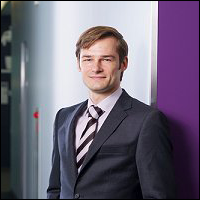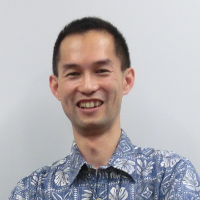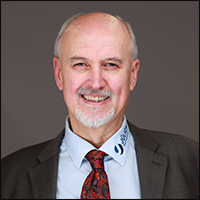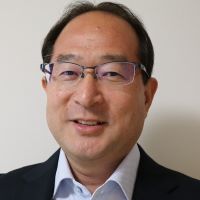Lecturer/Speaker Bios
Mario Acosta
 Mario C. Acosta is a Leading Researcher at the Barcelona Supercomputing Center (BSC), where he co-leads the Computational Earth Sciences (CES) group, comprising over 80 researchers working at the intersection of high-performance computing (HPC) and climate modeling. He earned his PhD in Computer Science in 2015 and joined BSC the same year. He is currently the coordinator of ESiWACE3, the third phase of the European Centre of Excellence for Weather and Climate Simulation (Horizon Europe), and leads HPC-related work packages in major climate initiatives such as Destination Earth's Climate Digital Twin and the EU-Japan collaboration HANAMI. He is also a member of the WCRP-WGCM Infrastructure Panel (WIP), where he co-leads the Energy Consumption and Carbon Footprint Task Team for CMIP. His research focuses on optimizing the computational and energy efficiency of Earth System Models on HPC platforms, minimizing execution time, energy consumption, and accelerating them for novel hardware as RISC-V processor.
Mario C. Acosta is a Leading Researcher at the Barcelona Supercomputing Center (BSC), where he co-leads the Computational Earth Sciences (CES) group, comprising over 80 researchers working at the intersection of high-performance computing (HPC) and climate modeling. He earned his PhD in Computer Science in 2015 and joined BSC the same year. He is currently the coordinator of ESiWACE3, the third phase of the European Centre of Excellence for Weather and Climate Simulation (Horizon Europe), and leads HPC-related work packages in major climate initiatives such as Destination Earth's Climate Digital Twin and the EU-Japan collaboration HANAMI. He is also a member of the WCRP-WGCM Infrastructure Panel (WIP), where he co-leads the Energy Consumption and Carbon Footprint Task Team for CMIP. His research focuses on optimizing the computational and energy efficiency of Earth System Models on HPC platforms, minimizing execution time, energy consumption, and accelerating them for novel hardware as RISC-V processor.
A.M.J.J. Bonvin
 Alexandre Bonvin (1964) studied Chemistry at Lausanne University, Switzerland and obtained his PhD at Utrecht University in the Netherlands (1993). After two post-doc periods at Yale University (USA) and the ETHZ (CH) he joined Utrecht University in 1998 where he was appointed full professor of computational structural biology in 2009. In 2006, he received a prestigious VICI grant from the Dutch Research Council. He was director of chemical education (2009-2012), vice head of the Chemistry Department (2010-2012) and Scientific Director of the Bijvoet Centre for Biomolecular Research (2019-2023). He has and is participating to several EU/EuroHPC projects including the BioExcel Center of Excellence in Biomolecular Simulations and the EU-India collaborative project GANANA. His work has resulted in over 275 peer-reviewed publications.
Alexandre Bonvin (1964) studied Chemistry at Lausanne University, Switzerland and obtained his PhD at Utrecht University in the Netherlands (1993). After two post-doc periods at Yale University (USA) and the ETHZ (CH) he joined Utrecht University in 1998 where he was appointed full professor of computational structural biology in 2009. In 2006, he received a prestigious VICI grant from the Dutch Research Council. He was director of chemical education (2009-2012), vice head of the Chemistry Department (2010-2012) and Scientific Director of the Bijvoet Centre for Biomolecular Research (2019-2023). He has and is participating to several EU/EuroHPC projects including the BioExcel Center of Excellence in Biomolecular Simulations and the EU-India collaborative project GANANA. His work has resulted in over 275 peer-reviewed publications.
Research within his group focuses on the development of reliable bioinformatics and computational approaches to predict, model and dissect biomolecular interactions at atomic level. For this, bioinformatics data, structural information and available biochemical or biophysical experimental data are combined to drive the modelling process. This is implemented and further developed in the widely used HADDOCK software for the modelling of biomolecular complexes (http://bonvinlab.org/software).
William Dawson
 William Dawson if a research scientist at the RIKEN Center for Computational Science and visiting associate professor at Kobe University. As an undergraduate, he studied computer science with a minor in chemistry at Grove City College. In 2016, he received a PhD from the University of California Davis in computer science. He is currently a member of the Materials Science Application Interface Platform Development Unit. His research interests lie at the intersection of linear algebra, computational chemistry, and high performance computing. He combines these fields in his research by developing new algorithms and software that enable the application of advanced quantum chemistry methods to larger and more realistic systems.
William Dawson if a research scientist at the RIKEN Center for Computational Science and visiting associate professor at Kobe University. As an undergraduate, he studied computer science with a minor in chemistry at Grove City College. In 2016, he received a PhD from the University of California Davis in computer science. He is currently a member of the Materials Science Application Interface Platform Development Unit. His research interests lie at the intersection of linear algebra, computational chemistry, and high performance computing. He combines these fields in his research by developing new algorithms and software that enable the application of advanced quantum chemistry methods to larger and more realistic systems.
Jens Domke
 Jens Domke is the Team Principal of the Supercomputing Performance Research Team at the RIKEN Center for Computational Science (R-CCS), Japan. He received his doctoral degree from the Technische Universität Dresden, Germany, in 2017 for his work on HPC routing algorithms and interconnects. Jens started his career in HPC in 2008, after he and a team of five students of the TU Dresden and Indiana University, won the Student Cluster Competition at SC08. Since then, he published dozens of peer-reviewed journal and conference articles. Jens contributed the DFSSSP and Nue routing algorithms to the subnet manager of InfiniBand, and built the first large-scale HyperX prototype at the Tokyo Institute of Technology. His research interests include system co-design, performance evaluation, extrapolation, and modelling, interconnect networks, and optimization of parallel applications and architectures.
Jens Domke is the Team Principal of the Supercomputing Performance Research Team at the RIKEN Center for Computational Science (R-CCS), Japan. He received his doctoral degree from the Technische Universität Dresden, Germany, in 2017 for his work on HPC routing algorithms and interconnects. Jens started his career in HPC in 2008, after he and a team of five students of the TU Dresden and Indiana University, won the Student Cluster Competition at SC08. Since then, he published dozens of peer-reviewed journal and conference articles. Jens contributed the DFSSSP and Nue routing algorithms to the subnet manager of InfiniBand, and built the first large-scale HyperX prototype at the Tokyo Institute of Technology. His research interests include system co-design, performance evaluation, extrapolation, and modelling, interconnect networks, and optimization of parallel applications and architectures.
Toshiyuki Imamura
 Toshiyuki Imamura leads the Large-Scale Parallel Numerical Computing Technology Team at RIKEN R-CCS, specializing in numerical libraries for HPC systems. He earned his diploma and doctorate in Applied Systems and Sciences from Kyoto University in 1993 and 2000, respectively. He was a researcher at CCSE, JAERI (1996-2003), a visiting scientist at HLRS (2002), and an associate professor at the University of Electro-Communications (2003-2012). His research interests include HPC, performance autotuning, parallel eigenvalue computation, and the high-performance EigenExa library for GPU systems. His group achieved the HPL-MxP ranking of 2.0 EFLOPS on the full Fugaku system in 2020-2021. He was also a Gordon Bell Prize finalist in SC05, SC06, and SC20 for his contributions to large-scale parallel eigensolvers. He also aims to nurture younger HPC talents by conducting the IHPCSS series as the Japanese representative, participating for almost 10 more years.
Toshiyuki Imamura leads the Large-Scale Parallel Numerical Computing Technology Team at RIKEN R-CCS, specializing in numerical libraries for HPC systems. He earned his diploma and doctorate in Applied Systems and Sciences from Kyoto University in 1993 and 2000, respectively. He was a researcher at CCSE, JAERI (1996-2003), a visiting scientist at HLRS (2002), and an associate professor at the University of Electro-Communications (2003-2012). His research interests include HPC, performance autotuning, parallel eigenvalue computation, and the high-performance EigenExa library for GPU systems. His group achieved the HPL-MxP ranking of 2.0 EFLOPS on the full Fugaku system in 2020-2021. He was also a Gordon Bell Prize finalist in SC05, SC06, and SC20 for his contributions to large-scale parallel eigensolvers. He also aims to nurture younger HPC talents by conducting the IHPCSS series as the Japanese representative, participating for almost 10 more years.
Yoshiyuki Kajikawa
 Dr. Yoshiyuki Kajikawa is a Senior Scientist of the Computational Climate Science Research Team at RIKEN Center for Computational Science (R-CCS). He is also a Project Professor of Research Center for Urban Safety and Security (RCCUSS) at Kobe University since 2016.He has studied climate variability over the Asian region and acquired Ph.D. (Science) at Nagoya University in 2005. He conducted climate diagnostic research as postdoctoral fellowship at the International Pacific Research Center (IPRC), University of Hawaii, USA from 2005 to 2009 and at the Nagoya University from 2009 to 2012.Since 2012, he has been in Research scientist position in RIKEN, he continued to work on the climate system studies on the hierarchical structure from deep convections, cloudy synoptic disturbances to general circulation by global cloud-resolving model. He is as specialist on and particularly interested in the multi-scale interaction of the Asian monsoon climate.
Dr. Yoshiyuki Kajikawa is a Senior Scientist of the Computational Climate Science Research Team at RIKEN Center for Computational Science (R-CCS). He is also a Project Professor of Research Center for Urban Safety and Security (RCCUSS) at Kobe University since 2016.He has studied climate variability over the Asian region and acquired Ph.D. (Science) at Nagoya University in 2005. He conducted climate diagnostic research as postdoctoral fellowship at the International Pacific Research Center (IPRC), University of Hawaii, USA from 2005 to 2009 and at the Nagoya University from 2009 to 2012.Since 2012, he has been in Research scientist position in RIKEN, he continued to work on the climate system studies on the hierarchical structure from deep convections, cloudy synoptic disturbances to general circulation by global cloud-resolving model. He is as specialist on and particularly interested in the multi-scale interaction of the Asian monsoon climate.
Chigusa Kobayashi
 Chigusa Kobayashi is a senior technical scientist at the RIKEN Center for Computational Science (R-CCS), Japan, working in both the software development technology unit and computational biophysics research team. She received her B.Sc. (1996), M.Sc. (1998), and D.Sc. (2000) from Nagoya University, and held postdoctoral appointments at Nagoya University, UC San Diego, Kobe University, and the Institute for Molecular Science. She joined RIKEN in 2011 and has been in her current position since 2024. Her research focuses on computer simulations of biological systems, particularly membrane and soluble proteins, to investigate structural dynamics and develop computational models and methods.
Chigusa Kobayashi is a senior technical scientist at the RIKEN Center for Computational Science (R-CCS), Japan, working in both the software development technology unit and computational biophysics research team. She received her B.Sc. (1996), M.Sc. (1998), and D.Sc. (2000) from Nagoya University, and held postdoctoral appointments at Nagoya University, UC San Diego, Kobe University, and the Institute for Molecular Science. She joined RIKEN in 2011 and has been in her current position since 2024. Her research focuses on computer simulations of biological systems, particularly membrane and soluble proteins, to investigate structural dynamics and develop computational models and methods.
Maddegedra Lalith
 Maddegedara Lalith received a B.E. in Civil Eng. from the Univ. of Peradeniya, Peradeniya, Sri Lanka in 1999. He obtained his M.E. and Ph.D. degrees in Civil Eng. from the Univ. of Tokyo, Japan in 2000, and 2005, respectively. He worked as a researcher at Japan Agency for Marine-Earth Science and Technology (JAMSTEC) from 2005 to 2009. He is currently an associate professor with the Earthquake Research Institute (ERI) and the Dept. of Civil Eng. of the Univ. of Tokyo. His research interests lie in agent-based modeling for disaster mitigation, computational mechanics, large-scale simulations of fault rupture and other crack propagation phenomena, and seamless high-resolution simulations from earthquake disasters to economic aftermath.
Maddegedara Lalith received a B.E. in Civil Eng. from the Univ. of Peradeniya, Peradeniya, Sri Lanka in 1999. He obtained his M.E. and Ph.D. degrees in Civil Eng. from the Univ. of Tokyo, Japan in 2000, and 2005, respectively. He worked as a researcher at Japan Agency for Marine-Earth Science and Technology (JAMSTEC) from 2005 to 2009. He is currently an associate professor with the Earthquake Research Institute (ERI) and the Dept. of Civil Eng. of the Univ. of Tokyo. His research interests lie in agent-based modeling for disaster mitigation, computational mechanics, large-scale simulations of fault rupture and other crack propagation phenomena, and seamless high-resolution simulations from earthquake disasters to economic aftermath.
Erik Lindahl
Satoshi Matsuoka
 Professor Satoshi Matsuoka has been the director of RIKEN Center for Computational Science (R-CCS) since 2018. He is responsible for developing the supercomputer Fugaku which has become the fastest supercomputer in the world in all four major supercomputer rankings in 2020 and 2021 (Top500, HPCG, HPL-AI, Graph500), along with multitudes of ongoing cutting edge HPC research being conducted, including investigating Post-Moore era computing, especially the future Fugaku NEXT supercomputer. He holds Ph. D. from the University of Tokyo in 1993. He was the leader of the TSUBAME series of supercomputers that had also received many international acclaims, at the Institute of Science Tokyo (formerly known as the Tokyo Institute of Technology), where he still holds a professor position, to continue his research activities in HPC as well as scalable Big Data and AI.
Professor Satoshi Matsuoka has been the director of RIKEN Center for Computational Science (R-CCS) since 2018. He is responsible for developing the supercomputer Fugaku which has become the fastest supercomputer in the world in all four major supercomputer rankings in 2020 and 2021 (Top500, HPCG, HPL-AI, Graph500), along with multitudes of ongoing cutting edge HPC research being conducted, including investigating Post-Moore era computing, especially the future Fugaku NEXT supercomputer. He holds Ph. D. from the University of Tokyo in 1993. He was the leader of the TSUBAME series of supercomputers that had also received many international acclaims, at the Institute of Science Tokyo (formerly known as the Tokyo Institute of Technology), where he still holds a professor position, to continue his research activities in HPC as well as scalable Big Data and AI.
Other accolades include the Fellow positions in societies/conferences ACM, ISC, JSSST (Japan Society for Software Science and Technology) and IPSJ (Information Processing Society of Japan); the ACM Gordon Bell Prizes in 2011 & 2021; the IEEE-CS Sidney Fernbach Award in 2014 as well as the IEEE-CS Computer Society Seymour Cray Computer Engineering Award in 2022, both being the highest awards in the field of HPC, and the only individual to receive both awards; he was selected as one of the HPCwire 35 Legends by the HPC wire in 2024; the Technical Papers Chair and the Program Chair for ACM/IEEE Supercomputing 2009 and 2013 (SC09 and SC13) respectively as well as many other conference chairs, and the ACM Gordon Bell Prize selection committee chair in 2018. His longtime contribution for the computer science research was commended with the Medal of Honor with Purple ribbon by his Majesty Emperor of Japan in 2022, and he received the Public Service Medal (Friends of Singapore) at the Singapore National Day Awards in 2025.
Bernd Mohr
 Bernd Mohr started to design and develop tools for performance analysis of parallel programs already with his diploma thesis (1987) at the University of Erlangen in Germany, and continued this in his Ph.D. work (1987 to 1992). During a three-year postdoc position at the University of Oregon, he designed and implemented the original TAU performance analysis framework. Since 1996, he has been a senior scientist at Forschungszentrum Juelich. Since 2000, he has been the team leader of the group ''Programming Environments and Performance Analysis''. Besides being responsible for user support and training in regard to performance tools at the Juelich Supercomputing Centre (JSC), he is leading the Scalasca performance tools efforts in collaboration with Prof. Felix Wolf of TU Darmstadt. Since October 2022, he also serves as head for the JSC division ''Application support'', for which he was deputy head for 15 years. He was an active member in the International Exascale Software Project (IESP/BDEC) and work package leader in the European (EESI2) and Juelich (EIC, ECL) Exascale efforts. For the SC and ISC Conference series, he served on the Steering Committee. He is the author of several dozen conference and journal articles about performance analysis and tuning of parallel programs.
Bernd Mohr started to design and develop tools for performance analysis of parallel programs already with his diploma thesis (1987) at the University of Erlangen in Germany, and continued this in his Ph.D. work (1987 to 1992). During a three-year postdoc position at the University of Oregon, he designed and implemented the original TAU performance analysis framework. Since 1996, he has been a senior scientist at Forschungszentrum Juelich. Since 2000, he has been the team leader of the group ''Programming Environments and Performance Analysis''. Besides being responsible for user support and training in regard to performance tools at the Juelich Supercomputing Centre (JSC), he is leading the Scalasca performance tools efforts in collaboration with Prof. Felix Wolf of TU Darmstadt. Since October 2022, he also serves as head for the JSC division ''Application support'', for which he was deputy head for 15 years. He was an active member in the International Exascale Software Project (IESP/BDEC) and work package leader in the European (EESI2) and Juelich (EIC, ECL) Exascale efforts. For the SC and ISC Conference series, he served on the Steering Committee. He is the author of several dozen conference and journal articles about performance analysis and tuning of parallel programs.
Seiya Nishizawa
 Seiya Nishizawa is a Senior Scientist at RIKEN Center for Computational Science (R-CCS) and Visiting Professor at Kobe University. He holds a PhD in Geophysics from Kyoto University. He previously held research positions at Kyoto University (Research Institute for Mathematical Sciences and Department of Geophysics), Kobe University (Department of Earth and Planetary Sciences), and served as a Visiting Researcher at the Meteorological Research Institute, Japan Meteorological Agency. His research focuses on atmospheric turbulence, turbulence–cloud interactions, and high-resolution atmospheric modeling.
Seiya Nishizawa is a Senior Scientist at RIKEN Center for Computational Science (R-CCS) and Visiting Professor at Kobe University. He holds a PhD in Geophysics from Kyoto University. He previously held research positions at Kyoto University (Research Institute for Mathematical Sciences and Department of Geophysics), Kobe University (Department of Earth and Planetary Sciences), and served as a Visiting Researcher at the Meteorological Research Institute, Japan Meteorological Agency. His research focuses on atmospheric turbulence, turbulence–cloud interactions, and high-resolution atmospheric modeling.
Jorji Nonaka
 Jorji Nonaka is a Technical Scientist at the Operations and Computer Technologies Division in the RIKEN Center for Computational Science (R-CCS), and his tasks include maintenance and user support of Fugaku’s large data visualization environment. He received his B.Sc. and M.Sc. from the University of Brasilia, Brazil, and his Ph.D. from Kyoto University, Japan. Before joining RIKEN, he worked as a post-doc researcher at Kyoto University and as a system engineer at KGT Inc., Japan, as well as a visiting professor at the Federal University of Pernambuco (UFPE), Brazil. His current research interests include scientific visualization, visual data analytics, and in-situ processing.
Jorji Nonaka is a Technical Scientist at the Operations and Computer Technologies Division in the RIKEN Center for Computational Science (R-CCS), and his tasks include maintenance and user support of Fugaku’s large data visualization environment. He received his B.Sc. and M.Sc. from the University of Brasilia, Brazil, and his Ph.D. from Kyoto University, Japan. Before joining RIKEN, he worked as a post-doc researcher at Kyoto University and as a system engineer at KGT Inc., Japan, as well as a visiting professor at the Federal University of Pernambuco (UFPE), Brazil. His current research interests include scientific visualization, visual data analytics, and in-situ processing.
Satoru Oishi
 Satoru Oishi, Ph.D. (Engineering) is Professor, Research Center for Urban Safety and Security, RCUSS; and Professor, Department of Civil Engineering, Graduate School of Engineering, Kobe University. Satoru Oishi has been engaged in disaster-related research for more than 30 years and has published over 150 scientific papers. He has served as principal investigator (PI) on nine projects and has led more than 30 research programs funded by Grants-in-Aid for Scientific Research.
Satoru Oishi, Ph.D. (Engineering) is Professor, Research Center for Urban Safety and Security, RCUSS; and Professor, Department of Civil Engineering, Graduate School of Engineering, Kobe University. Satoru Oishi has been engaged in disaster-related research for more than 30 years and has published over 150 scientific papers. He has served as principal investigator (PI) on nine projects and has led more than 30 research programs funded by Grants-in-Aid for Scientific Research.
From 1993 to 1999, he was a Research Associate at the Disaster Prevention Research Institute, Kyoto University, where his work centered on the fundamental mechanisms of cumulus cloud formation and development through numerical cloud-resolving models, complemented by extensive observational experiments.
Between 2000 and 2009, he served as Associate Professor at the University of Yamanashi, conducting research in river engineering and sabo (erosion and sediment control) engineering, including numerous international field studies.
Since 2009, he has been Professor at Kobe University, with a primary focus on the application of remote sensing technologies to disaster prevention.
From 2017 to 2025, he also served as Team Leader of the Computational Disaster Mitigation and Reduction Research Team at the RIKEN Center for Computational Science (R-CCS), where he promoted the use of high-performance computing for disaster simulations, covering earthquakes, tsunamis, and weather-related hazards.
Daniele Varsano
 Dr. Daniele Varsano is a Senior Researcher at the CNR-NANO Institute of Nanoscience in Modena, Italy. He holds a degree in Physics from the University of Rome “La Sapienza” and earned his PhD from the University of the Basque Country in 2006. His expertise lies in the electronic and optical properties of materials, with a focus on ab initio methods such as Quantum Monte Carlo, DFT, TDDFT, and many-body perturbation theory.
Dr. Daniele Varsano is a Senior Researcher at the CNR-NANO Institute of Nanoscience in Modena, Italy. He holds a degree in Physics from the University of Rome “La Sapienza” and earned his PhD from the University of the Basque Country in 2006. His expertise lies in the electronic and optical properties of materials, with a focus on ab initio methods such as Quantum Monte Carlo, DFT, TDDFT, and many-body perturbation theory.
Dr. Varsano’s current research centers on the atomistic modeling of nanostructured materials for applications in photovoltaics, photocatalysis, and optoelectronics, with a particular interest in excited-state phenomena and excitonic effects in low-dimensional systems. He is a senior developer of the Yambo code for first-principles excited-state calculations and has co-organized numerous international schools and workshops.
He serves on the Steering Committee of the European Theoretical Spectroscopy Facility, leads Training Activities in the EU Centre of Excellence MaX (Materials at the Exascale), represents CNR in the EuroHPC project HANAMI as Principal Investigator, and chairs the Psi-k Working Group on Training and Education.
Jeff Vetter
Mohamed Wahib
 Mohamed Wahib is a Team Principal of the “High Performance Artificial Intelligence Systems Research Team” at RIKEN Center for Computational Science (R-CCS), Kobe, Japan. Prior to that he worked as is a senior scientist at AIST/TokyoTech Open Innovation Laboratory, Tokyo, Japan. He received his Ph.D. in Computer Science from Hokkaido University, Japan. His research interests revolve around the central topic of high-performance programming systems, in the context of HPC and AI. He is actively working on several projects including AI-based science, as well as high-level frameworks for programming traditional scientific applications.
Mohamed Wahib is a Team Principal of the “High Performance Artificial Intelligence Systems Research Team” at RIKEN Center for Computational Science (R-CCS), Kobe, Japan. Prior to that he worked as is a senior scientist at AIST/TokyoTech Open Innovation Laboratory, Tokyo, Japan. He received his Ph.D. in Computer Science from Hokkaido University, Japan. His research interests revolve around the central topic of high-performance programming systems, in the context of HPC and AI. He is actively working on several projects including AI-based science, as well as high-level frameworks for programming traditional scientific applications.
Kathy Yelick
 Katherine Yelick is the Vice Chancellor for Research at the University of California, Berkeley, where she also holds the Robert S. Pepper Distinguished Professor of Electrical Engineering and Computer Sciences. She is also a Senior Faculty Scientist at Lawrence Berkeley National Laboratory. Her research is in high performance computing, programming systems, parallel algorithms, and computational genomics. Yelick was Director of the National Energy Research Scientific Computing Center (NERSC) from 2008 to 2012 and led the Computing Sciences Area at Lawrence Berkeley National Laboratory from 2010 through 2019. She is a member of the National Academy of Engineering and the American Academy of Arts and Sciences, and is a Fellow of the Association for Computing Machinery (ACM) and the American Association for the Advancement of Sciences (AAAS).
Katherine Yelick is the Vice Chancellor for Research at the University of California, Berkeley, where she also holds the Robert S. Pepper Distinguished Professor of Electrical Engineering and Computer Sciences. She is also a Senior Faculty Scientist at Lawrence Berkeley National Laboratory. Her research is in high performance computing, programming systems, parallel algorithms, and computational genomics. Yelick was Director of the National Energy Research Scientific Computing Center (NERSC) from 2008 to 2012 and led the Computing Sciences Area at Lawrence Berkeley National Laboratory from 2010 through 2019. She is a member of the National Academy of Engineering and the American Academy of Arts and Sciences, and is a Fellow of the Association for Computing Machinery (ACM) and the American Association for the Advancement of Sciences (AAAS).
Naoto Yokoya
 Naoto Yokoya is a Professor at the University of Tokyo and, since 2018, has been leading the geoinformatics team at the RIKEN Center for Advanced Intelligence Project, Tokyo. Previously, he was an Assistant Professor at the University of Tokyo from 2013 to 2017 and an Alexander von Humboldt Fellow at the German Aerospace Center and the Technical University of Munich from 2015 to 2017. He received his M.Eng. and Ph.D. from the Department of Aeronautics and Astronautics at the University of Tokyo in 2010 and 2013, respectively. His research focuses on visual information processing of large-scale real-world scenes.
Naoto Yokoya is a Professor at the University of Tokyo and, since 2018, has been leading the geoinformatics team at the RIKEN Center for Advanced Intelligence Project, Tokyo. Previously, he was an Assistant Professor at the University of Tokyo from 2013 to 2017 and an Alexander von Humboldt Fellow at the German Aerospace Center and the Technical University of Munich from 2015 to 2017. He received his M.Eng. and Ph.D. from the Department of Aeronautics and Astronautics at the University of Tokyo in 2010 and 2013, respectively. His research focuses on visual information processing of large-scale real-world scenes.